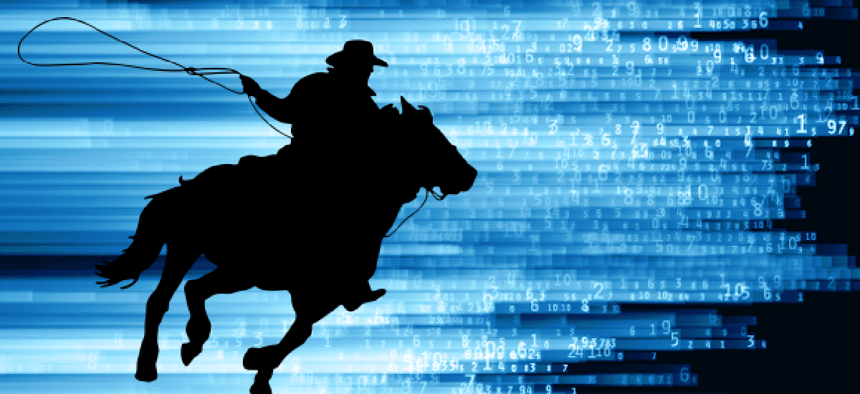Data Rodeo: How Texas corrals its transportation data


Connecting state and local government leaders
The Data Rodeo project aims to synthesize existing transportation data and make it useful for transit agencies, researchers and third parties.
Cities collecting data to improve their transportation systems are rounding up public and private data from street sensors, GPS-enabled buses, automated vehicles and ridesharing companies like Uber and Lyft. But how can that data be most efficiently managed?
In Texas, it goes in a rodeo, of course.
The University of Texas at Austin's Data Rodeo project aims to corral and synthesize existing transportation data and make it useful for transit agencies, researchers and third parties.
The idea for the rodeo came a few years ago when the university's Center for Transportation Research was developing planning models for the Capital Area Metropolitan Planning Organization. Some of the data required for the models came from the city of Austin, some came from surrounding Travis County, and some came from the state.
“We had to talk with 10 different people for over three weeks to get the information we needed,” said Natalia Ruiz Juri, a research associate at the CTR and director of its Network Modeling Center.
So rather than asking for data every time they needed it, the researchers centralized the information in the Data Rodeo.
The rodeo played a key part in Austin’s final application for the U.S. Department of Transportation’s Smart City Challenge. The city described it as a two-way open data management system "that enables travelers, public agencies, and Smart City partners to archive, analyze and access meaningful data and decision-making tools.”
The Data Rodeo collects various disconnected public and private data sources, tools and technologies for analyzing transportation data. It has three objectives: data archiving, data analysis and data accessibility, with an ultimate goal of delivering real-time access.
But rather than create a regional transportation dashboard, the Data Rodeo is "trying to be one step removed from that,” Juri said. The project is more about working with governments to open up their data to make it available for developers and researchers and centralizing application programming interfaces and other access points that are now dispersed across multiple agencies.
The data will be coming from a variety of sensors that the region already has deployed, including those that count traffic, control signals and measure travel time. It could also store data from transit, like location of buses, and data from ride-sharing services like Lyft. Texas is also going to have some automated and connected vehicle test beds, and Juri said the data from those could be included in the rodeo.
“Because that’s very, very important for understanding how the vehicles may affect the transportation system in the future and this is a lot of data,” she said about the data from automated vehicles.
The Data Rodeo has been featured in hackathons that gave citizens a chance to provide ideas and insight. One event opened up anonymized Bluetooth data that estimates individual travel time to see what use cases developers could come up with. Another was an effort to see whether Raspberry Pis could provide as much accuracy as more expensive sensors. The less expensive alternatives are in the field, and researchers are comparing results to ensure they’re accurate enough to use going forward, Juri said.
As sensors bring more data to transportation agencies, there is a hope that the data will answer questions and solve problems. The Data Rodeo is just part of that effort, Juri said.
“We want to … understand how to get more value out of the data,” she said.




